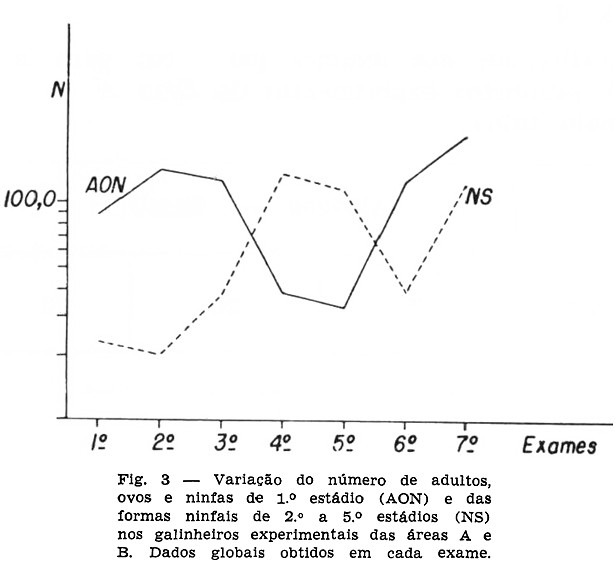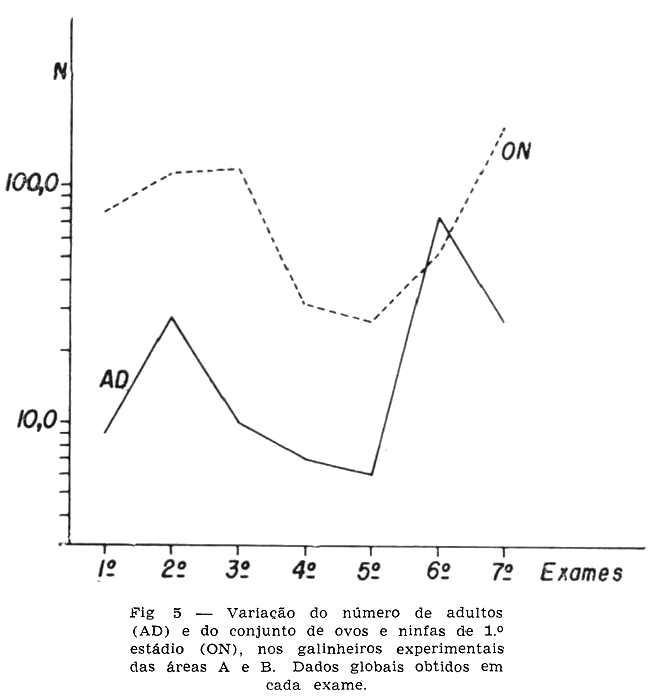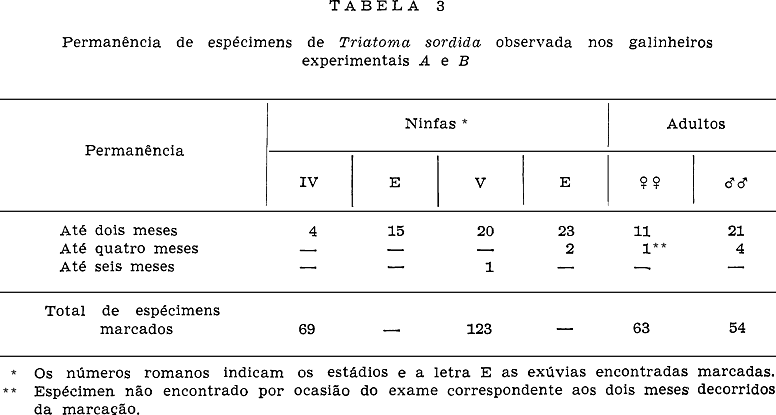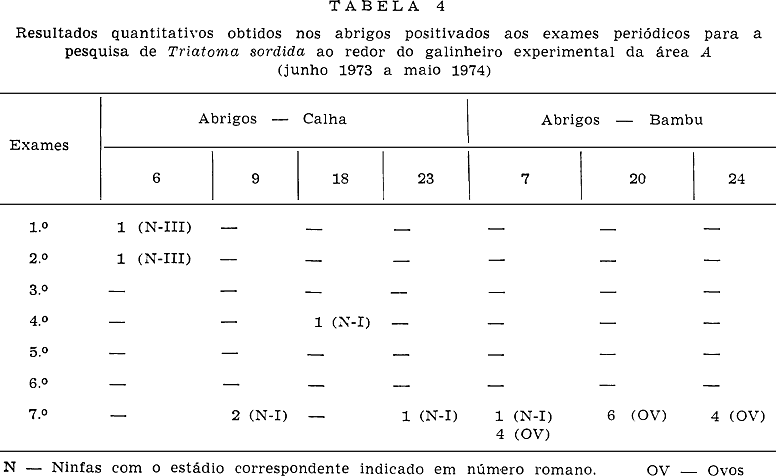Spontaneous colonies of Triatoma sordida developed in experimental fowlhouses were submitted to observations as regards permanence and mobility of this bug. During thirteen months, adults and nymphs of fourth and fifth in stars were tagged for recapture. Resting traps for atracting bugs were placed around the fowlhouses. Adults showed no more than two months of permanence inside these artificial ecotopes. Eggs and first nymphs found in the resting traps suggested activity of adults coming from the fowlhouses. It was evident that this triatomid has a dispersal capacity and an adult tendency towards leaving the colonies as soon as the first egg batches are layed. After this the female will continue the oviposition inside other ecotopes attempting to develop new colonies. This aspect agress with the high characteristic ecological valence of this bug.
Trypanossomiasis, South American; Triatoma sordida; Triatomids bugs (mobility, dispersal); Medical ecology

 Ecological aspects of South American Tripanosomiasis: VII. Permanence and mobility of Triatoma sordida with relation to artificial ecotopes
Ecological aspects of South American Tripanosomiasis: VII. Permanence and mobility of Triatoma sordida with relation to artificial ecotopes









